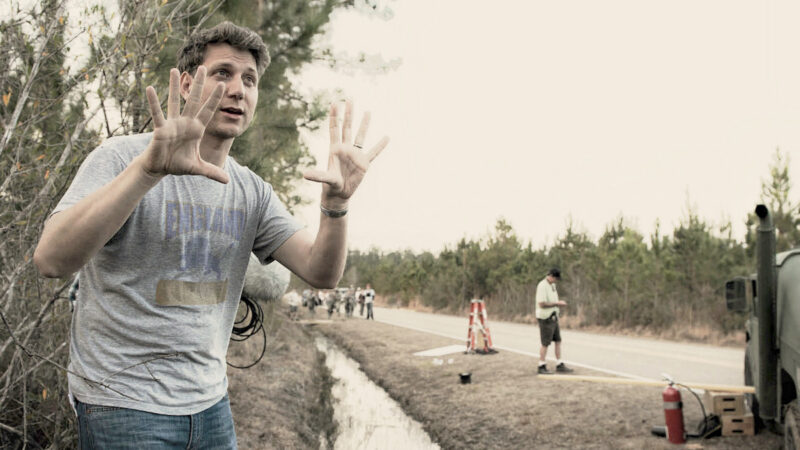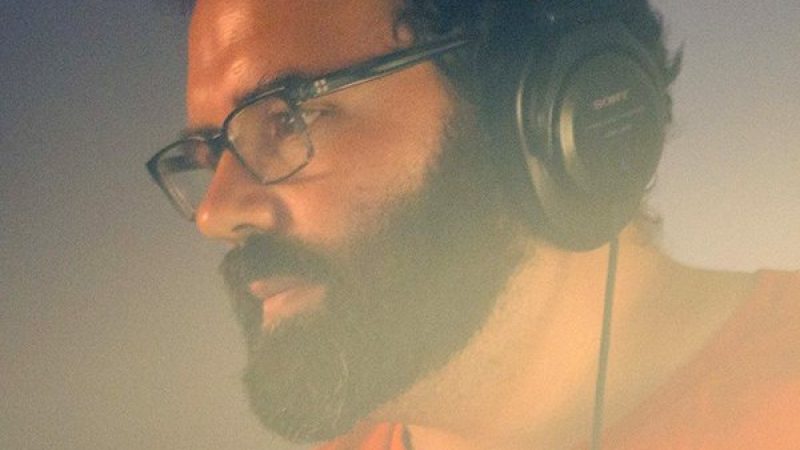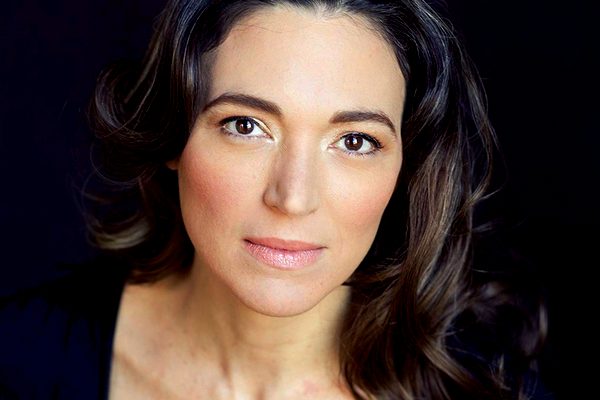
When I was little, we lived in a suburb outside Chicago, and as far back as I can remember my mother, who grew up in Long Island and New York City, would dress us up and bring us into the city to see the ballet, theatre, opera, symphony, museums. It was very important to her that we grew up with art. I was always thrilled with theatre and dance, I auditioned for all the class plays and took ballet classes. I was a pretty solitary kid, and could be found in the backyard, making up stories of adventure. Yes, I was usually a princess, but like Princess Leia, not Sleeping Beauty. My heroines fought their way out of their own prisons, defeated their own dragons, found the pot of gold. I loved storytelling. My impulse to be an actor comes from wanting to share a story. In seventh grade, my parents – with the caveat that I had to keep my grades up – enrolled me in a children’s theatre program and I really never looked back.
Very pleased to announce that I will be directing THE GIRL IN THE RED CORNER for @BrokenNoseChi this winter. Rehearsals start as soon as I wrap production on @TheRedLineCBS in December. Cast announcements to follow! pic.twitter.com/86hvfhdi85
— Elizabeth Laidlaw (@mzlaylaw) September 14, 2018
My mother also raised me on classic cinema. When she moved into downtown Chicago in 1980, there was a vintage/art movie house near our apartment, The Village, on Clark St. She’d take us to see Fred Astaire musicals and Marx Brothers comedies. Also the original NOSFERATU, THE GODFATHER, BEN HUR (her favorite,) old Westerns. I remember seeing PALE RIDER there, as well as FAME. We saw it there on my 9th birthday. There is a scene where a director coerces Irene Cara to take off her blouse in an audition and she weeps with shame. We talked about it afterwards, “If you want to go into that business you will have to take care of yourself and be smart. There are a lot of creeps out there.” I always appreciated that my mom didn’t shy away from the implications of the scene, and I never forgot that warning.
indieactivity: Did you study acting?
Elizabeth Laidlaw: I studied theatre, though not always as an actor. In high school, when there wasn’t a role for me in whatever play we were doing, the director of our theatre department would ask me to be an assistant director. I didn’t realize it at the time, but he saw that I was someone who wanted to take charge of the story, and he was grooming me to do that. I attended Illinois Wesleyan University, which had a small theatre department quickly growing in prestige. I wanted to go there in part because it was close enough to Chicago that I could drive home weekends, and see theatre. It kept me connected to the professional scene.
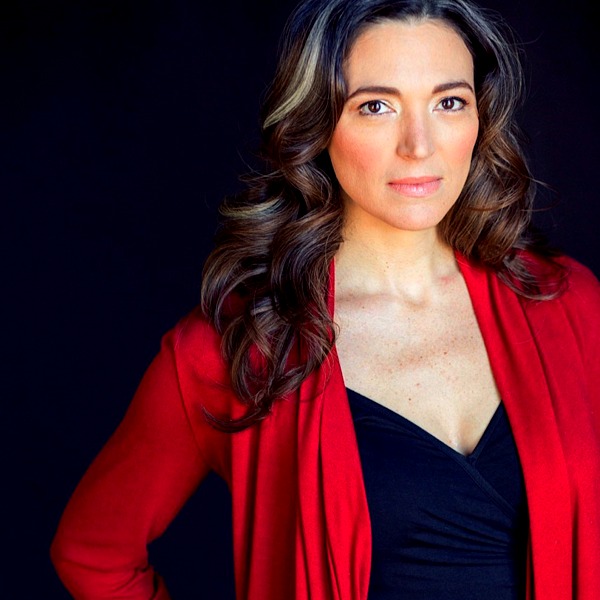
Elizabeth Laidlaw
In addition, theatre students could branch out. We weren’t limited to one emphasis of study; I studied acting, theatre history and directing. I was one of three students to be awarded a directing slot in the season my senior year. I collaborated with other students to make performance projects outside the department. After college, I went straight to Chicago, allied myself with a small company called Strawdog Theatre, where I acted as well as producing several shows as well as conceiving an original work based on a friends body of poetry and the original music of a band that I had gotten to know.
After attending the Royal Academy of Dramatic Art in London and studying Shakespeare in my late 20’s, I came home and began my theatre company, Lakeside Shakespeare Theatre in 2003. (It is in pre-production for it’s 15th season currently.) I produced every season, direct periodically and have performed in most of the shows.
It wasn’t until my late 30’s/early 40’s that my film and tv career really began to pick up, and that was largely due to the fact that the Chicago film community really began to pick up. I had done some scattered episodes, commercials, and two tiny independent films prior, but it was when I was cast at age 40 in a recurring role on BOSS (Starz) that I had an opportunity to really watch how stories were put on film. I shadowed our Line Producer, Peter Giuliano for the making of episode 205, and learned as much as I could from the AD’s and the camera team. As time went on and I spent more and more time on sets, both big network and studio work and small, scrappy independent projects, I made a habit of staying on set, of not disappearing into my trailer or the ‘green room.’ I wanted to learn and listen.
it was a natural evolution from making and producing my own work in theatre to wanting to do so on film.
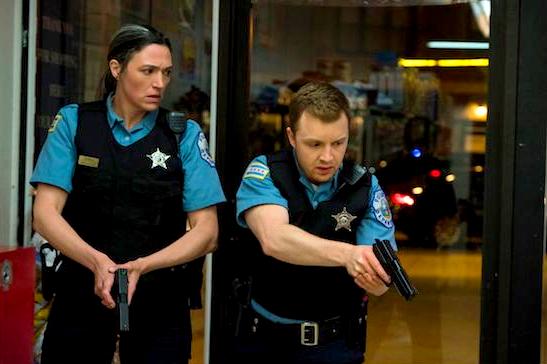
Elizabeth Laidlaw and Noel Fisher in THE RED LINE – CBS
indieactivity: What is your filmmaking process?
Elizabeth Laidlaw: I loved my high school director, Doc Edward Wingler. He used to shout at us to “stop with the greasy kid stuff,” which we somehow figured out to mean, “play the given circumstances of the scene.” In college, the training was largely based on the work of Stanislavsky. There was a lot of Chekov in scene-study class. In addition we studied vocal technique, and I took dance classes. I wasn’t really interested in being a dancer per se, but I love physical theatre and stage combat and dance training gave me a lot of strength and confidence to commit my whole body to a performance. Later, after a few years of doing theatre in Chicago, I was accepted into the Royal Academy of Dramatic Art to study Shakespeare performance. This curriculum, along with teaching what is called Folio Technique, included extensive vocal training, as well as movement, Elizabethan dance and rapier-and-dagger combat.
My formal training, along with my experience working on stage and on camera has ultimately distilled to this. What are the words on the page? What does the character saying? Does s/he/they believe was they are saying, or is it a lie? How do they feel about who they are speaking to? What does your character hope to gain, and what does your character stand to lose, i.e. what are the stakes. What do other characters say about this person? Do the words feel awkward? Try to make them make sense, see how it changes your performance. Play what is written, play the stakes and listen to what the other person is saying or not saying. That is probably a lot of techniques rolled up into one, but that’s how I work.
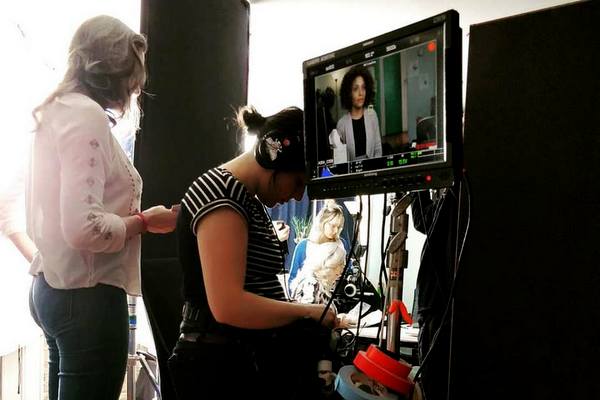
indieactivity: Tell us about your work?
Elizabeth Laidlaw: Acting is not “look at me.” Acting is not making yourself cry, or wanting people to look at you. Acting is storytelling. What is the story? How are you serving the story? How do you and your acting partner, which might be the audience or the camera, work together to tell the story? Sometimes telling the story is that everyone is looking at you. Sometimes the story is you looking at another character and waiting for them to pick up the narrative. Serve the whole story, and not yourself, your “image.” Your character may not be liked, may not win, may not be desired or beautiful. Every character is part of a story and you must relinquish ego and serve the story.
indieactivity: Do you take courses to improve your craft?
Elizabeth Laidlaw: I no longer take classes. I work a lot, and every new group of people, new play, and new set is an opportunity to hone my craft. I’m 47 now, and I have a child, and a very busy career. If I were to have time to take a class it would be to learn something really outside my comfort zone, like circus arts or clowning, or a martial art. Something I could use to expand my abilities in my work.
indieactivity: How do you combine acting and directing?
Elizabeth Laidlaw: This is an interesting question, and I’m gonna say that it isn’t something an inexperienced person should attempt. As you get older, as you gain experience, and if you work hard to cultivate a professionalism that eliminates as much ego as possible, if you trust your directors when acting, over time you get a sense of how you as a performer fit into the picture and into the story. You also learn what kind of direction encourages you to do open yourself to the work, what is helpful, and what is distracting or confusing. Then, when given a chance to direct, you try to communicate as you would like to be communicated to when you are acting. In general, less words are better than more. Try to distill your direction down to a few well-chosen, well-considered words. Just as in acting, a director needs to have a clear understanding of where she wants the story to go, and also be willing to be surprised and let that surprise inform the storytelling if it serves it.
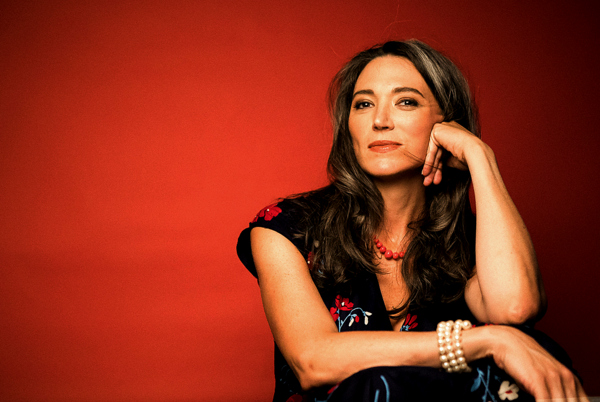
Elizabeth Laidlaw by Joe Mazza
indieactivity: How did you get into the film business?
Elizabeth Laidlaw: As stated above, film picked up in Chicago in the 2000’s and I was appearing on camera more and more. My producing partner on THE HAVEN webseries, Mia McCullough approached me with an idea for a pilot based on her experiences working in a domestic violence shelter. She and I had collaborated in theatre previously, and at that point in my career I felt ready to take what I’d learned watching films get made, my previous experience fundraising and producing theatre, my years coaching and directing other actors, and the relationships we’d built over time to get our first season made. Prior to The Haven, Mia and I also co-produced a short film with the student film department at Interlochen School for the Arts as a sort of test run of our ability to produce together.
indieactivity: What acting tip can you give growing filmmakers?
Elizabeth Laidlaw: Write the first draft. Don’t be afraid of it being terrible. Just get to the end. A good script is revised and revised and worked and revised again. But if you don’t finish the first draft, you have nowhere to start.
indieactivity: What do you want to change about the film business?
Elizabeth Laidlaw: Absolutely want to see stereotypes broken down across racial, age and gender lines. People are so complicated and real life is filled with nuance and color. It’s not filled with white male superheroes in performance lycra. It’s filled with brown people who AREN’T in gangs or prisons, but who are doctors and scientists and community organizers. It’s filled with people over 65 and have wrinkles who still fall in love or lust and make impulsive decisions.
As an actor/combatant at @chicagoshakes rehearsing to play The Prince in R&J, I wield a sword and #DressLikeAWoman pic.twitter.com/mKAnOfApR6
— Elizabeth Laidlaw (@mzlaylaw) February 5, 2017
It’s filled with women who take risks and fight and are incredibly smart and figure things out and don’t organize their lives around whether or not a certain man will want to marry them. It’s filled with men who love children and are kind and have never thrown a punch in their lives and hope they will never have to. It’s filled with people who love across gender, across race, across culture. I want to see those stories, more, and less car chases. I do like fantasy and science fiction, but I’m much more invested if the emphasis is on character and story and beautiful art direction that serves the story. I’m less interested in quick-cut fight scenes and things blowing up.
Finally, telling stories where women are not sex objects, but people. We still have a long, long way to go in that respect.
indieactivity: How do you want to be remembered?
Elizabeth Laidlaw: Lifting up women and girls. Being kind and just. Being a good storyteller.
indieactivity: What do you want from an actor during production?
Elizabeth Laidlaw: Honesty. Focus. Commitment. A sense of humor.
indieactivity: How can a director enter this industry?
Elizabeth Laidlaw: Probably studying at a film school, at this point. Or produce and direct your own project and get people to see it. Probably both. it’s a lot of hard work. Producing and raising money is just hard hard boring work. You have to keep at it, be determined, be prepared to not sleep much and spend more of your own money than you thought you would. I backdoored my way into producing and directing by way of being an actor and making relationships. That last part is key. Making solid relationships with collaborators. It’s a collaborative art.
indieactivity: Who is your favorite director?
Elizabeth Laidlaw: I can never answer this question. I love too many. I tend to favor women directors, though. I love to watch Jane Campion and Sally Potter and Julie Taymor’s films. But I also love Guillermo del Toro and Francis Ford Coppela and Park Chan-wook.
indieactivity: Briefly write about your career?
Elizabeth Laidlaw: Elizabeth Laidlaw has worked as a Chicago-based screen, stage and voice-over actor for twenty five years. Film credits include the critically acclaimed Henry Gamble’s Birthday Party, as well as Cleveland Abduction, Into The Wake, Dimension and Three Days. Television appearances include Chicago PD, Betrayal, Crisis, The Chicago Code, TURKS, and the role of Alderman Linda Driscoll on Boss. She is the co-producer of and stars in the Chicago-based web-series, The Haven ( thehavenweb.com ) a dramedy set in a domestic violence shelter, currently in post-production and going live fall of 2018. Also in 2018, Elizabeth joined the main cast of The Red Line a new series for CBS-TV and Warner Bros. Studios, in the role of Officer Victoria “Vic” Renna. The pilot was shot in March of this year, and shooting for season one will resume in Au-gust in Chicago.
As a stage actor, Elizabeth has performed with many Chicago companies, including Steppen-wolf, Chicago Shakespeare Theatre, The Goodman, Writer’s Theatre, and Court Theatre, to name a few. Regionally she has appeared at American Repertory Theatre, Irish Classical Thea-tre and Indiana Repertory Theatre. One of her proudest Chicago theatre contributions was help-ing to create David Cromer’s landmark production of Angels In America, in which she played the Angel. Recently, that production was featured in The World Only Spins Forward: Angles in America, an Oral History, by Isaac Butler and Dan Kois. She is the founder and artistic director of Lakeside Shakespeare Theatre in Benzie County Michigan, which will celebrate it’s 15th sea-son in July and August of 2018.
Elizabeth has lent her voice to numerous ad campaigns, including Disney and Sears, and was very proud to narrate the award-winning documentary Hard Earned by Kartemquin Films, exam-ining the struggle of individuals trying to get by on minimum wage in America.
Elizabeth received a BFA in performance and directing from Illinois Wesleyan University, and studied Shakespeare at the Royal Academy of Dramatic Art in London, UK.
Follow Elizabeth Laidlaw on Social Media
Website
IMDB
Facebook
Twitter
Instagram
The Key Facts Behind How Jeff Nichols Made The Indie Hit MUD
Jeff Nichols gives himself directorial challenges to master on every project.
In Conversation with Michael Oblowitz Director of Confidential Informant
Confidential Informant stars Mel Gibson, Dominic Purcell, and Kate Bosworth

